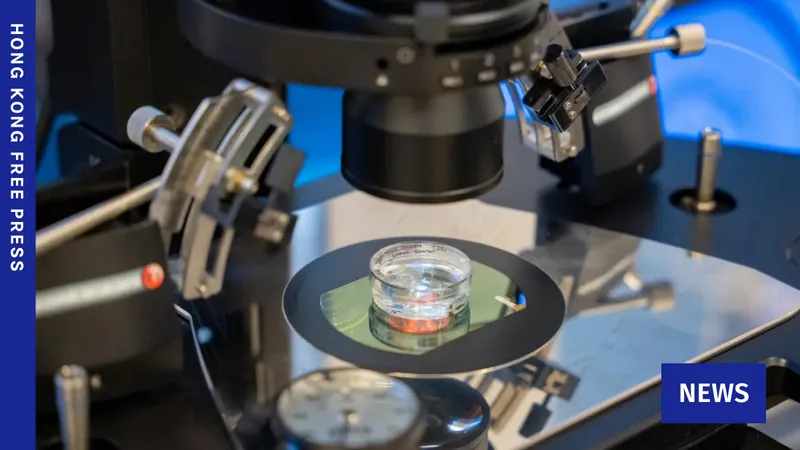
Game Changer: Hong Kong to Eliminate 10-Year Limit on Frozen Eggs and Embryos!
2025-07-18
Author: Kai
Ending the 10-Year Rule
In a groundbreaking move, Hong Kong is set to abolish the decade-long regulation that limits the storage duration of frozen eggs, sperm, and embryos, with the change effective from December. This decision comes as the city grapples with a declining birth rate, prompting authorities to reassess reproductive policies.
Empowering Choices for Families
The proposed legislative amendments aim to empower individuals to decide how long they wish to store their gametes or embryos, allowing them to make choices based on personal health and circumstances. The government emphasized this change as a step towards enhancing reproductive autonomy.
What's Changing?
Currently, the law mandates that frozen gametes and embryos can only be stored for a maximum of 10 years or until a patient reaches 55 years of age if infertility arises from medical treatments. However, this restriction will be lifted, giving families the flexibility they need.
Legislative Process Fast-Tracked
These amendments are set to be passed directly into law on an expedited basis on Wednesday, allowing for future scrutiny by lawmakers. The changes are anticipated to take effect on December 1, pending approval from the Legislative Council.
Additional Safeguards to be Introduced
As part of the new regulations, additional support will be provided for individuals who have stored their gametes or embryos for over five years. They will be required to undergo counseling before being allowed to extend their storage period.
A Struggling Birth Rate
Hong Kong's birth rate has plummeted in recent years, with an increasing number of couples opting to remain childless. Data reveal that the median age of first-time mothers has surged from 29.4 in 2003 to 32.9 in 2023. A staggering 70% of survey respondents expressed no desire to have children, citing factors like the stress of the education system and the cramped living situation in the city.
Government Incentives Fall Short
Although the government has introduced a one-off cash incentive of HK$20,000 for each child born since October 2023, it has been criticized as ineffective for those who have already chosen not to have children. Other measures, like tax breaks and priority housing for families, are also on the table in a bid to stimulate a baby boom.
Inequality in Reproductive Rights
It's important to note that under current laws, only heterosexual married couples have the legal right to store embryos, leaving LGBTQ+ couples without access to these reproductive technologies. This highlights a significant gap in the city's approach to family planning and reproductive rights.






 Brasil (PT)
Brasil (PT)
 Canada (EN)
Canada (EN)
 Chile (ES)
Chile (ES)
 Česko (CS)
Česko (CS)
 대한민국 (KO)
대한민국 (KO)
 España (ES)
España (ES)
 France (FR)
France (FR)
 Hong Kong (EN)
Hong Kong (EN)
 Italia (IT)
Italia (IT)
 日本 (JA)
日本 (JA)
 Magyarország (HU)
Magyarország (HU)
 Norge (NO)
Norge (NO)
 Polska (PL)
Polska (PL)
 Schweiz (DE)
Schweiz (DE)
 Singapore (EN)
Singapore (EN)
 Sverige (SV)
Sverige (SV)
 Suomi (FI)
Suomi (FI)
 Türkiye (TR)
Türkiye (TR)
 الإمارات العربية المتحدة (AR)
الإمارات العربية المتحدة (AR)